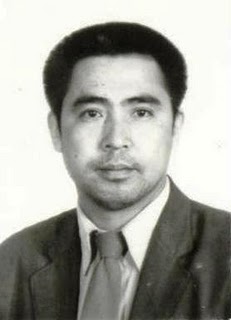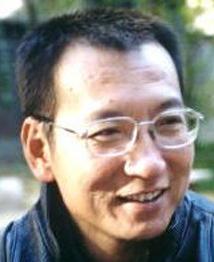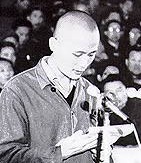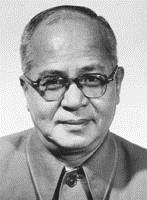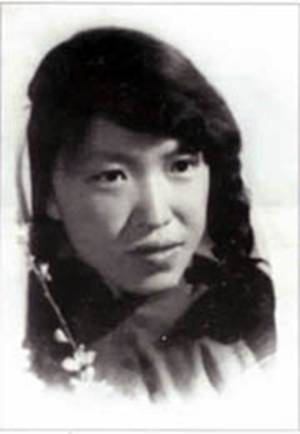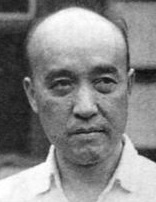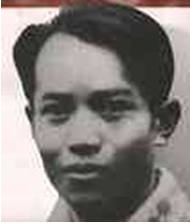PEN International is seriously concerned for the well-being of Uyghur writer, academic and Uyghur PEN member, Ilham Tohti, who was formally charged with “splittism” on 20 February 2014, amid a crackdown on Chinese Uyghurs critical of the government. His wife received formal notification of the charges on 25 February. Dozens of writers have joined American PEN in calling for his release. Continue reading
About ICPC
The Independent Chinese PEN Center (ICPC) is a non-political, non-profit organization of writers that fights for the protection of freedom of expression and publication, and works toward ensuring the free flow of information, a prerequisite for a truly open society.More
Monthly Posts
- 2025 年 7 月 (1)
- 2024 年 7 月 (1)
- 2024 年 3 月 (1)
- 2023 年 4 月 (3)
- 2022 年 10 月 (1)
- 2022 年 7 月 (1)
- 2021 年 1 月 (3)
- 2020 年 12 月 (2)
- 2020 年 11 月 (2)
- 2020 年 9 月 (4)
- 2020 年 8 月 (1)
- 2020 年 7 月 (1)
- 2020 年 6 月 (5)
- 2020 年 5 月 (2)
- 2020 年 4 月 (1)
- 2020 年 3 月 (3)
- 2020 年 2 月 (5)
- 2020 年 1 月 (11)
- 2019 年 12 月 (2)
- 2019 年 11 月 (6)
- 2019 年 10 月 (4)
- 2019 年 9 月 (4)
- 2019 年 8 月 (3)
- 2019 年 7 月 (5)
- 2019 年 6 月 (14)
- 2019 年 5 月 (1)
- 2019 年 4 月 (1)
- 2019 年 3 月 (3)
- 2019 年 2 月 (2)
- 2019 年 1 月 (4)
- 2018 年 10 月 (4)
- 2018 年 9 月 (1)
- 2018 年 8 月 (1)
- 2018 年 7 月 (2)
- 2018 年 6 月 (3)
- 2018 年 5 月 (1)
- 2018 年 4 月 (2)
- 2018 年 3 月 (2)
- 2018 年 2 月 (4)
- 2018 年 1 月 (2)
- 2017 年 12 月 (2)
- 2017 年 11 月 (3)
- 2017 年 10 月 (1)
- 2017 年 6 月 (1)
- 2017 年 5 月 (3)
- 2017 年 3 月 (27)
- 2017 年 2 月 (24)
- 2017 年 1 月 (33)
- 2016 年 12 月 (24)
- 2016 年 11 月 (27)
- 2016 年 10 月 (29)
- 2016 年 9 月 (31)
- 2016 年 8 月 (31)
- 2016 年 7 月 (30)
- 2016 年 6 月 (26)
- 2016 年 5 月 (30)
- 2016 年 4 月 (27)
- 2016 年 3 月 (33)
- 2016 年 2 月 (26)
- 2016 年 1 月 (32)
- 2015 年 12 月 (36)
- 2015 年 11 月 (34)
- 2015 年 10 月 (41)
- 2015 年 9 月 (36)
- 2015 年 8 月 (37)
- 2015 年 7 月 (37)
- 2015 年 6 月 (39)
- 2015 年 5 月 (39)
- 2015 年 4 月 (39)
- 2015 年 3 月 (30)
- 2015 年 2 月 (38)
- 2015 年 1 月 (37)
- 2014 年 12 月 (35)
- 2014 年 11 月 (46)
- 2014 年 10 月 (92)
- 2014 年 9 月 (159)
- 2014 年 8 月 (109)
- 2014 年 7 月 (123)
- 2014 年 6 月 (263)
- 2014 年 5 月 (185)
- 2014 年 2 月 (1)
- 2014 年 1 月 (2)
- 2013 年 11 月 (1)
- 2013 年 8 月 (1)
- 2013 年 6 月 (1)
- 2013 年 1 月 (1)
- 2012 年 12 月 (1)
- 2012 年 11 月 (1)
- 2012 年 10 月 (2)
- 2012 年 8 月 (1)
- 2012 年 7 月 (1)
- 2012 年 6 月 (1)
- 2012 年 4 月 (2)
- 2012 年 2 月 (1)
- 2012 年 1 月 (3)
- 2011 年 12 月 (7)
- 2011 年 11 月 (1)
- 2011 年 10 月 (1)
- 2011 年 9 月 (1)
- 2011 年 7 月 (16)
- 2011 年 6 月 (8)
- 2011 年 4 月 (2)
- 2011 年 3 月 (2)
- 2005 年 12 月 (1)
- 2004 年 7 月 (1)
Member’s Works
BEI Ling
CHEN Kuide
CHEN Pokong
DU Daobin
LIAO Tienchi
LIU Xiaobo
MA Jian
MEI Jing
MURONG Xuecun
TENG Biao
WU Chenjun
XIN Hong
XUE Di
YANG Lian
YU Jie
ZHANG Ci
ZHANG Yu
ZHENG Yi
ZHENG Zeng

